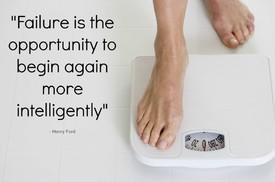ZERO CALORIE FRUITS

romzana
Posts: 86 Member
PLEASE CAN YOU NAME SOME ZERO CALORIE FRUITS
ALSO ARE MANGO JUICES GOOD FOR YOU WHEN DIETING the shop bought ones
thnaks for reading
ALSO ARE MANGO JUICES GOOD FOR YOU WHEN DIETING the shop bought ones
thnaks for reading
0
Replies
-
I don't think there is such a thing at a zero calorie fruit..low calorie yes, but I think everything that is food has calories0
-
I'm sorry to inform you, but there is no such thing as zero calorie fruit.0
-
I don't think there are any fruits that have zero calories. There are low cal fruits though like strawberries and watermelon.
mango juice will be very high in sugar and possible high in calories but in moderation you can have anything.0 -
Berries are going to be the lowest calorie fruits, but due to the sugars in fruit, none are zero calorie.0
-
add me and check out my blog about fruits0
-
Are you thinking points, like weight watchers? I think for weight watchers purposes I have heard others say that some fruits are no points.0
-
There are no zero calorie foods. Only water has no calories. There are some foods that do require more calories to digest than they provide but that's only because they have a high water content and don't have much in the way of real nutrition.0
-
Watermelon is actually really high in sugar as well as pineapples and mangos & bananas.
Try Plums, strawberries, Red Grapes, apples, (you want to stick with the berries they are good) oranges, grapefruit, prunes , pears peaches
Hope this helps0 -
No such thing as zero calorie fruits. They have fructose (the natural sugar in fruits) and thus calories.
But that's okay. You NEED carbs and calories. Just have fruits for your sweet stuff, instead of candy or cakes. All the vitamins and phytonutrients naturally in fruits are good for you too! A banana is about the highest calorie fruit, and it only has about 130 calories. A whole cup of berries is only about 50 calories. Apples are about 80, I think. Cantaloupe has vitamin A and C, and a good sized serving is also near 50 calories. Most fruits are like that.
Incidentally, veggies also have calories. Most don't have that many, but the higher-sugar ones (squash, carrots, corn) have a bit more. A whole cup of steamed broccoli is only 30 calories. But still has calories.
As far as juice, I've always kept with the idea that one glass of 100% juice is fine, but beyond that you get no extra benefits and it's just calories. It's better to eat the whole fruit. And mangoes are good for you. Just about any fruit is good for you. It will fill you up more than the juice, too. Same for veggie juices. 1 serving is okay, but beyond that there's more benefits to eating the actual veggie.0 -
Watermelon is actually really high in sugar as well as pineapples and mangos & bananas.
Try Plums, strawberries, Red Grapes, apples, (you want to stick with the berries they are good) oranges, grapefruit, prunes , pears peaches
Hope this helps
Oranges are very high in sugar as well.0 -
Like everyone else said... no zero calorie fruit.
Also, caps lock is NOT cruise control for cool. Just sayin'.0 -
thanks sorry forgot about that0
-
Hi
I think what is meant by zero calories is that although an apple will have say 62 calories it would take 150 calories for your body to digest this which would then mean a deficit of say 90 calories and that where the zero comes in. I read this somewhere and
it made sense to me.0 -
yea the last comment is right, there is such a thing as "zero-calorie fruits and veggies" you can google it haha, its not that the actual fruit gives you zero calories, that is yes impossible...but there are fruits/veggies that take more calories for your body to digest then what they actually give, therefore they create a calorie deficient and can be considered 'zero calorie'.0
-
Pretty much the only thing with zero calories is water.0
-
STILL....yep no calories fruits ...impossible BUT... people go... OMG SUGAR!!!!
Let's get real here.... It's natural fructose sugar...You need some, not too much but it's very healthy.
Fruits are so important for many reason...Yes they include sugar but it's good sugar.
So, let's not freak out for fruits
It's similar to FAT... Avacado are amazing for you... But so many calories and fat BUT again, Awesome calories and fat!
People need to make the difference here .... eating healthy doesn't mean, Stopping everything.
Take Care0 -
yea the last comment is right, there is such a thing as "zero-calorie fruits and veggies" you can google it haha, its not that the actual fruit gives you zero calories, that is yes impossible...but there are fruits/veggies that take more calories for your body to digest then what they actually give, therefore they create a calorie deficient and can be considered 'zero calorie'.
or not.0 -
yea the last comment is right, there is such a thing as "zero-calorie fruits and veggies" you can google it haha, its not that the actual fruit gives you zero calories, that is yes impossible...but there are fruits/veggies that take more calories for your body to digest then what they actually give, therefore they create a calorie deficient and can be considered 'zero calorie'.
or not.
Any calorie burn achieved through eating (called the thermogenic effect) is already factored into your BMR - so still please count your low calorie fruits & veggies as they do add up.0 -
???0
-
In regards to the people that posted about fruits that take more calories to digest then they have, here's my favorite excerpt from my favorite article on it. ( http://www.answerfitness.com/269/negative-calorie-foods-fact-fiction/ ):
Is Celery Really a Negative Calorie Food?
While the list of negative calorie foods has ballooned to include everything from beets to strawberries and mangoes (yes, I’m being serious here), celery is the most commonly cited negative calorie food.
From a nutritional standpoint, celery is pretty much empty. It’s basically made up of water, sodium, some trace minerals and something called cellulose — which is a form of vegetable fiber than the human body cannot digest. It contains no protein or fat and marginal carbohydrates. Any other nutrition in celery is in the form of vitamins, minerals and enzymes, which contain no calories.
In fact, aside from iceberg lettuce and cucumbers, you probably couldn’t find a less nutritious, lower-calorie vegetable to eat. These foods are already about as close as you can get to eating zero calories. Close, but not quite, as we’ll see in a moment.
A large, stalk of celery weighing in at 2.2 ounces contains only nine calories. Negative calorie diet advocates claim that the mere process of chewing and digesting celery requires an expenditure of energy that exceeds the 9 calories present in the celery. Therefore, the argument goes, celery has “negative calories.”
Again, this all sounds good in theory, but what about in practice?
Issues with the Negative Calorie Foods Theory
There are some flaws with the negative calorie food theory, however.
First, the reason that certain foods like celery are already low in calories is exactly because of their high-non-caloric nutritional content. The fact that cellulose, water and minerals like sodium contain no calories is already figured into the food’s caloric-content. That’s why it has minimal calories in the first place. Negative food advocates want to double-dip here, and have you believe that the non-caloric nutrients like cellulose lower its effective calorie levels even more, but that’s just not how it works. This is already baked-in.
Second, the whole argument that the body burns more calories chewing and digesting negative calorie foods like celery is also suspect.
Yes, the body does expend a certain amount of energy to digest food, but that expenditure — even with foods that contain a high-percentage of non-caloric nutrients like cellulose — is actually fairly minimal.
Typically, the body will expend 10 - 15 percent of the calories you consume each day to fuel digestion. Let’s just throw the negative calorie food gurus a bone and say that for foods that are rich in non-digestible nutrients like cellulose, that number is actually as high as 50 percent of calories consumed (I have no evidence for this claim — I’m just being generous to prove a point.)
In the case of celery — the poster child of all negative calorie foods – you would be burning an extra 4.5 calories per each 9 calorie, 2.2 oz serving of celery. That would put your effective net calories at 4.5 (9/50% = 4.5 calories) — hardly “negative calorie” territory.
And because the amount of energy expended on digestion of foods is always expressed as a percentage, to have a negative calorie effect, digestion would have to constitute at least 101% of the energy consumed in order to create a negative calorie environment — something which is physically impossible.
So it appears that the food that is the best candidate for qualifying as a negative calorie food — celery – can’t even hit the break-even point, let alone become “calorie-negative.”
Edited by wolfchild59 on Wed 03/14/12 01:52 AM0 -
STILL....yep no calories fruits ...impossible BUT... people go... OMG SUGAR!!!!
Let's get real here.... It's natural fructose sugar...You need some, not too much but it's very healthy.
Fruits are so important for many reason...Yes they include sugar but it's good sugar.
So, let's not freak out for fruits
It's similar to FAT... Avacado are amazing for you... But so many calories and fat BUT again, Awesome calories and fat!
People need to make the difference here .... eating healthy doesn't mean, Stopping everything.
Take Care
Wait, it's only fructose? You mean all the sucrose, glucose, galactose, maltose, and the hundreds of other different sugars in fruits aren't really there? Saying all fruit has only fructose in it is like saying all protein sources only have one type of amino acid, it's not true at all.0 -
Um, no. It certainly doesn't take 150 calories to digest an apple, it might take 20. Also, I'd love to see an apple with only 60 calories, most of them are 150 or so, unless you eat really small apples.Hi
I think what is meant by zero calories is that although an apple will have say 62 calories it would take 150 calories for your body to digest this which would then mean a deficit of say 90 calories and that where the zero comes in. I read this somewhere and
it made sense to me.
Your body uses roughly 200 calories a day digesting all the food you eat, it certainly doesn't use all of that for just the apple you ate.0 -
Hi
I think what is meant by zero calories is that although an apple will have say 62 calories it would take 150 calories for your body to digest this which would then mean a deficit of say 90 calories and that where the zero comes in. I read this somewhere and
it made sense to me.
:huh: :noway: No..0 -
Only things that are ZERO calorie are water & air. Sorry. Nothing apart from that.
Why do so many people listen to weight watchers kind of crap?0 -
Um, no. It certainly doesn't take 150 calories to digest an apple, it might take 20. Also, I'd love to see an apple with only 60 calories, most of them are 150 or so, unless you eat really small apples.Hi
I think what is meant by zero calories is that although an apple will have say 62 calories it would take 150 calories for your body to digest this which would then mean a deficit of say 90 calories and that where the zero comes in. I read this somewhere and
it made sense to me.
Your body uses roughly 200 calories a day digesting all the food you eat, it certainly doesn't use all of that for just the apple you ate.
Small apple 100g is 50 cals according to Calorie king. Medium apple is 70, large 120. Sorry but if you are eating a 150cal apple... then it's NOT an apple.0 -
Lol I foolishly rushed to see the answer to this question even though I knew the answer. :blushing:I0
-
Near: Pickles. They say 0 on the jar and they have seeds, so they are a fruit, not a vegetable.
I just read that in the U.S. they can mark food at 0 calories if it is 5 calories or less, but still, 5 calories is not a lot if you only eat a few to snack. It is difficult to make them add up because you would need to eat 20 pickles for 100 calories or 100 pickles for 500 calories! I definitely don't think most people eat 100 pickles a day. lmso0 -
Go for a ten minute run everytime you eat an apple.
Ta-da - you now have your 'zero/negative calorie' fruit :P.0 -
You say apple, exactly which variety are you talking about? There are several hundred different types of apples, all with various sugar content and calories. How big is the "large apple?" Most apples I eat are around 250 grams, which put them in the 130 calorie range based on your generic 50 calorie number, then again, I don't trust most online sites for calories in apples, because they all seem to use the exact same numbers for all varieties, which is wrong.
Um, no. It certainly doesn't take 150 calories to digest an apple, it might take 20. Also, I'd love to see an apple with only 60 calories, most of them are 150 or so, unless you eat really small apples.Hi
I think what is meant by zero calories is that although an apple will have say 62 calories it would take 150 calories for your body to digest this which would then mean a deficit of say 90 calories and that where the zero comes in. I read this somewhere and
it made sense to me.
Your body uses roughly 200 calories a day digesting all the food you eat, it certainly doesn't use all of that for just the apple you ate.
Small apple 100g is 50 cals according to Calorie king. Medium apple is 70, large 120. Sorry but if you are eating a 150cal apple... then it's NOT an apple.
Also, all calorie numbers are an estimate, I'd put large apples as closer to 150 than 120, depending on the time of year.0 -
There aren't any, and if there were it would be pointless eating them as they wouldn't do anything for you.
I hear sawdust is a good filler.0
This discussion has been closed.
Categories
- All Categories
- 1.4M Health, Wellness and Goals
- 398.4K Introduce Yourself
- 44.7K Getting Started
- 261K Health and Weight Loss
- 176.4K Food and Nutrition
- 47.7K Recipes
- 233K Fitness and Exercise
- 462 Sleep, Mindfulness and Overall Wellness
- 6.5K Goal: Maintaining Weight
- 8.7K Goal: Gaining Weight and Body Building
- 153.5K Motivation and Support
- 8.4K Challenges
- 1.4K Debate Club
- 96.5K Chit-Chat
- 2.6K Fun and Games
- 4.7K MyFitnessPal Information
- 17 News and Announcements
- 21 MyFitnessPal Academy
- 1.5K Feature Suggestions and Ideas
- 3.2K MyFitnessPal Tech Support Questions





















